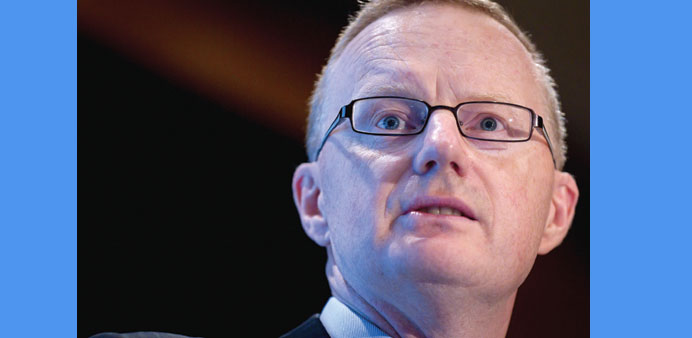Reuters/Sydney
The global fund management business has grown so vast that it poses risks to financial stability and might need to be regulated more tightly, just as banks are, a top Australian central banker said yesterday.
Reserve Bank of Australia (RBA) deputy governor Philip Lowe said assets in managed funds had surged globally in recent years to around an estimated $75tn, equal to about 55% of all the assets held by banks.
Many of these funds allowed investors to take their money out at short notice even when the underlying assets were not very liquid, and were likely to be even less liquid at times of market stress.
“The underlying concern is not that these vehicles will be unable to meet their obligations to their investors, but rather that they could serve to spread distress across the broader financial system,” Lowe told a Thomson-Reuters conference on regulation.
As a result, policymakers were considering what role greater regulation should play in the industry. “Relevant issues here include: how prescriptive any liquidity regulations should be; what are the merits of alternatives to fund freezes, such as exit fees and liquidity gates; and what, if any, role should the central bank play when markets freeze and normally liquid assets cannot be traded.”
Lowe said regulators were also considering whether the risks would be any different if investment portfolios were managed directly by individual investors, rather than by asset managers.
Lowe provided a few recommendations drawn from the Australia’s experience with runs on asset funds.
Investors needed to understand fully that access to their money could be restricted during times of market stress and that funds should have clear rules about the freezing of redemptions. Bank-managed funds should be clearly separated from their parent banks, said Lowe, so that investors know the fund does not carry a bank guarantee. Unit prices in funds need to be updated much more frequently, and most in Australia are now update daily.

Lowe: For greater regulation.
